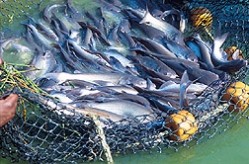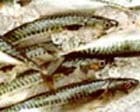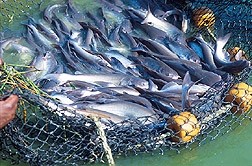Nuclear fears pummeled seafood trade between Korea and Japan

According to the Korean Ministry for Food, Agriculture, Forestry and Fisheries, fears of radiation contamination have influenced Koreans to almost halve their seafood imports from Japan.
Data released by the Ministry on February 21 revealed South Korea imported 40,466 tons of marine products from Japan last year, down 47% from 2010, when 76,350t were imported.
This shortfall was accounted for by neighboring Russia, and then Chile, from where the country increased its seafood imports by 13% and 67% respectively, the ministry said.
Fears
A ministry spokesman told FoodNavigator-Asia that imports from Japan were hit by a combination of food safety fears amongst Koreans and decreased production in Japan.
“Japan produced a much lower number of seafood products in last year in the wake of the Fukushima nuclear accident. We do not expect production levels to come to pre-March 2011 levels anytime soon,” he said.
The spokesperson added that the disruption in the seafood trade with Japan meant Koreanconsumers paid more.. “Logistically and otherwise, the cost of getting seafood from Chile is much higher than it was getting from Japan. This has not helped in this time of high inflation.”
The Fukushima nuclear incident saw a series of equipment failures, nuclear meltdowns, and release of radioactive substances at Fukushima 1 Nuclear Power Plant on March 11, 2011, following an earthquake and Tsunami in Japan on the same day
The accident caused major disruptions in food production in Japan and consequently a majority of its food exports to other countries over contamination fears in food items such as rice and seafood.
The Korean ministry revealed further that China was the largest seafood exporter to Korea last year with 316,926 tons, followed by Russia with 308,021 tons and Taiwan with 61,297 tons.













